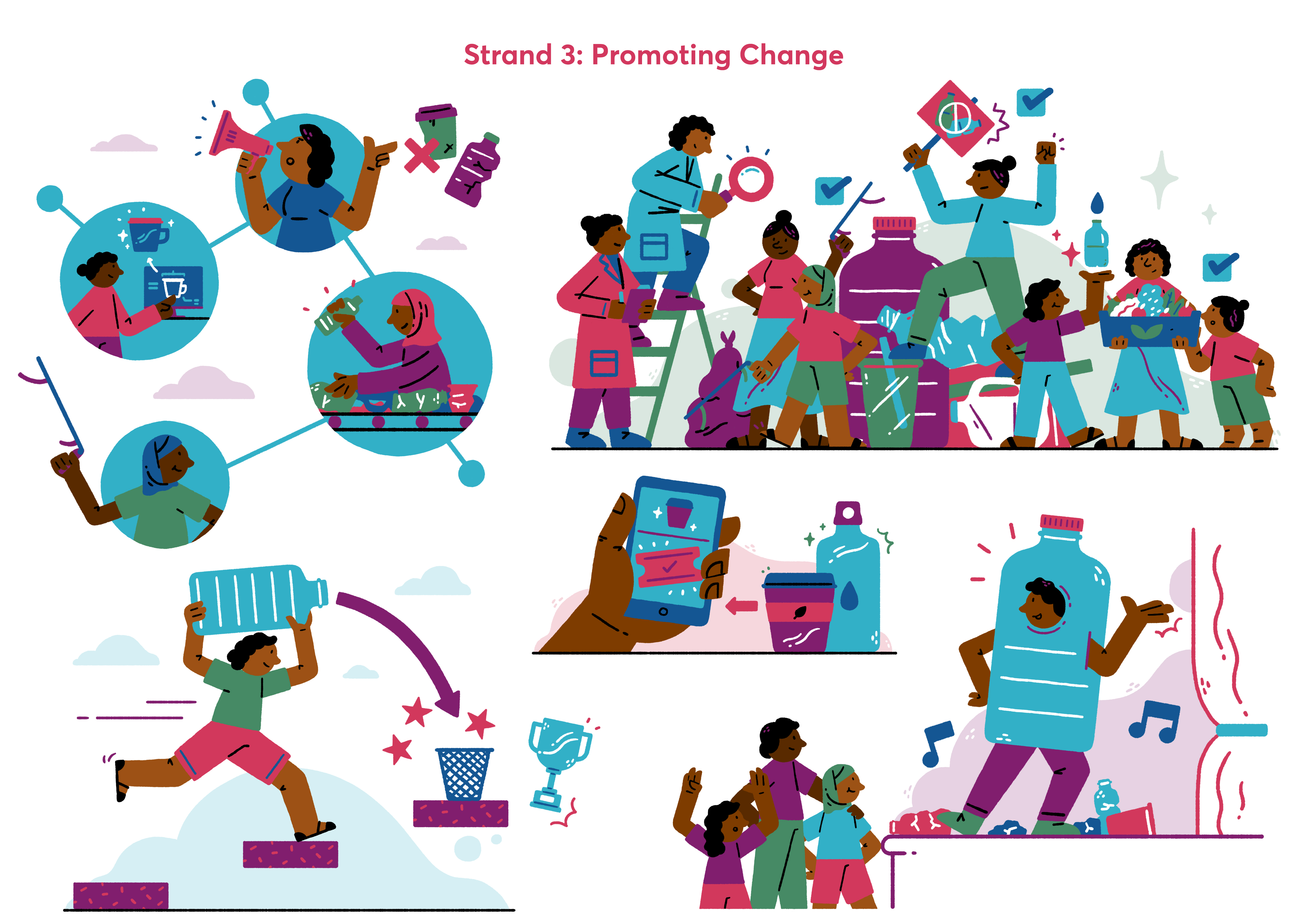Click here to read this blog in French. Cliquez ici pour lire ce blog en français.
The day that you have all been waiting for is finally here. We are pleased to unveil the semi-finalists of Promoting Change, the third and final strand of the Afri-Plastics Challenge. The Challenge aims to reduce marine plastics in Sub-Saharan African countries by developing and scaling innovative solutions to reducing plastic pollution.This strand began accepting applications from 8 December 2021. This marks the last leg of the Challenge after Strand 1: Accelerating Growth and Strand 2: Creating Solutions were launched in July and October 2021, respectively.
The semi-finalists selected for strand 3 are developing campaigns, schemes, tools and other creative interventions that will change both the behaviour of individuals and communities around plastic waste in Sub-Saharan Africa, as well as contribute to the empowerment of women and girls.

The challenge could not have come at a better time. At the recently concluded UNEA 5.2, the world’s ministers for the environment agreed to establish an Intergovernmental Negotiating Committee with the mandate to forge an international legally binding agreement to end plastic pollution. This legally binding global agreement on plastic pollution was the most significant environmental multilateral deal since the Paris Accord. The resolution calls for a treaty which promotes sustainable alternatives to plastics and fosters international collaboration on access to technology, capacity building and scientific and technical cooperation.
The projects presented by the semi-finalists have provided an opportunity to promote behavior change and save oceans from pollution, as researchers of a study published in the journal Science in 2020 estimated that plastics entering the ocean could triple to nearly 29 million metric tonnes by 2040 if current production and consumption remains unchecked.
What’s next for the Semi-Finalists?
Thirty semi-finalists for Strand 3 of the Afri-Plastics Challenge will receive capacity-building support to further develop their engagement strategies, alongside a grant of £5,000 each. Fifteen finalists will then be selected in June 2022 to implement their ideas with support from additional capacity-building support and a grant of £50 000. Finally, three winners will each receive £250,000 in March 2023.
The semi-finalists all presented innovative ideas in tandem with the theme of strand 3. We have already identified and recognised numerous initiatives working to combat plastic waste in new ways. Individuals, organisations and governments all have a duty to take action on plastic waste. While the solutions may vary, policy solutions, increased awareness, and improved design and disposal processes, among others, are critical to changing behavior and better managing plastic waste.
